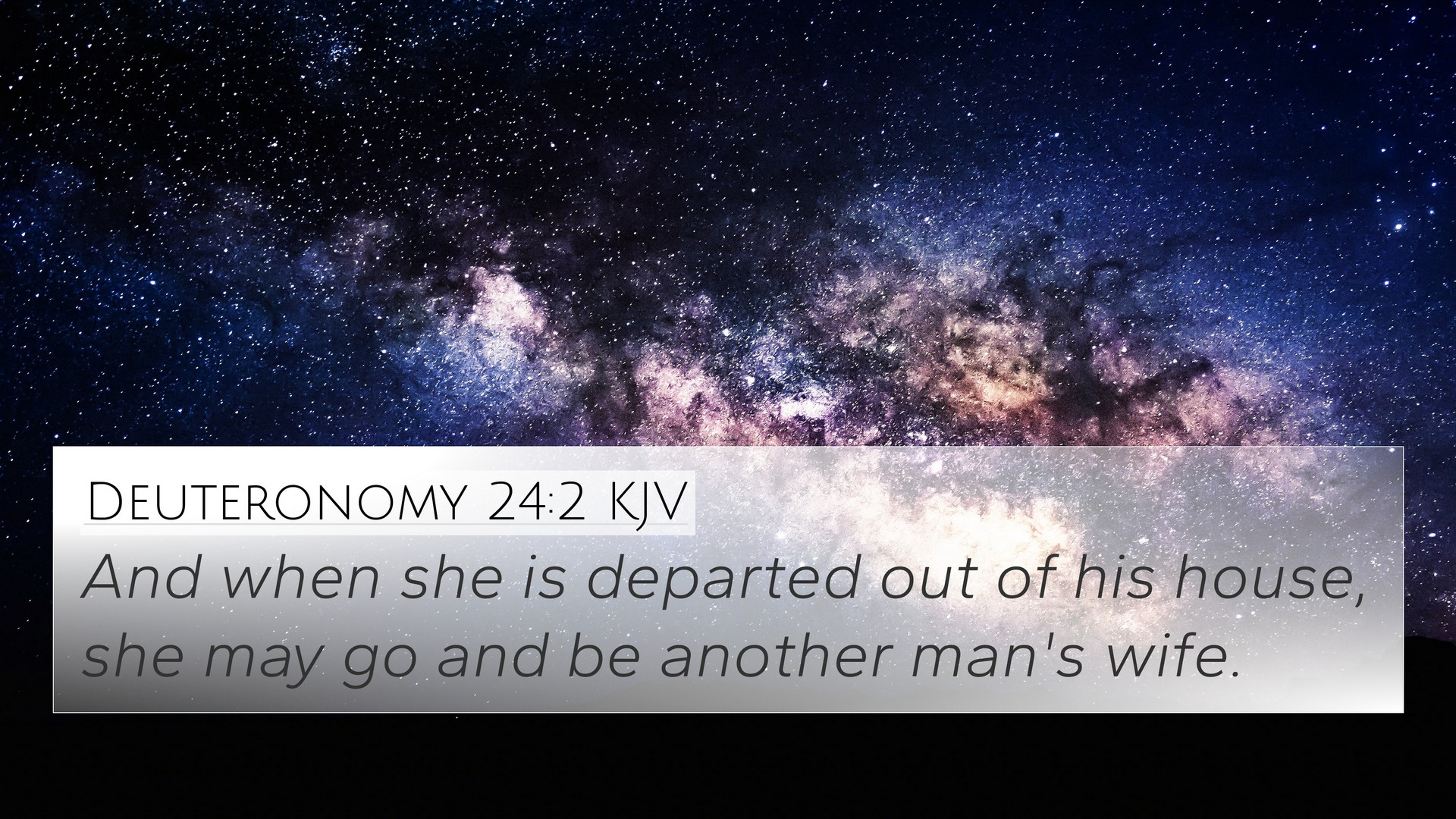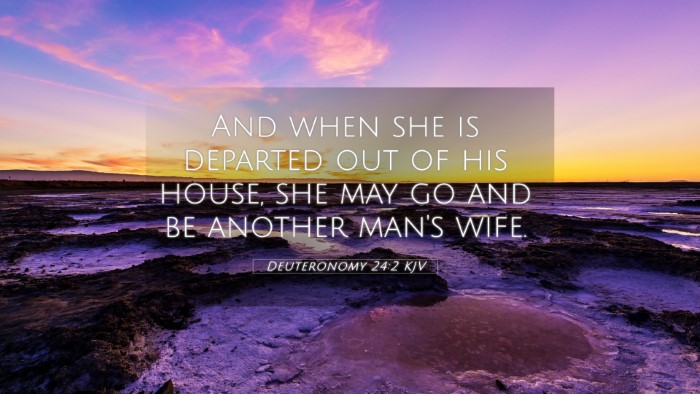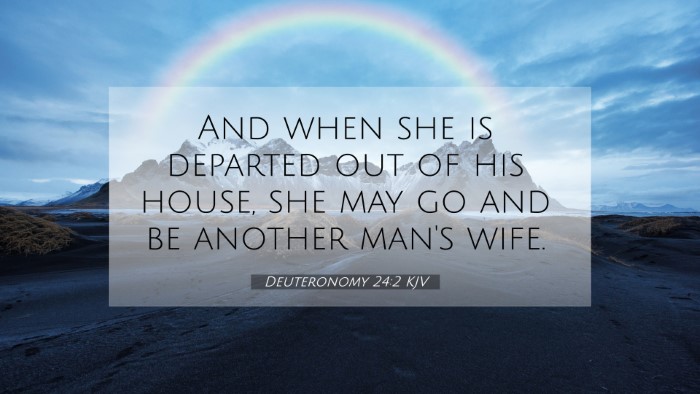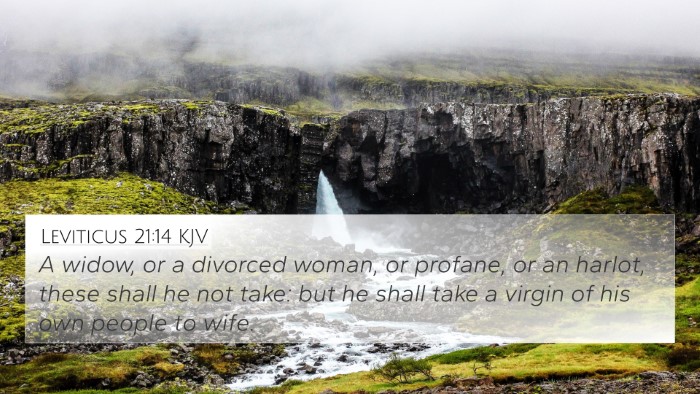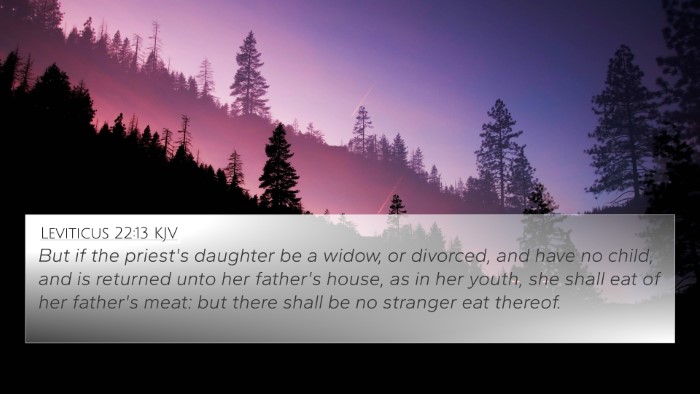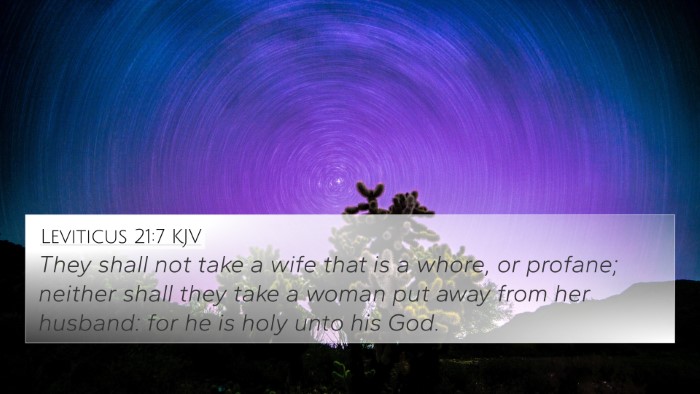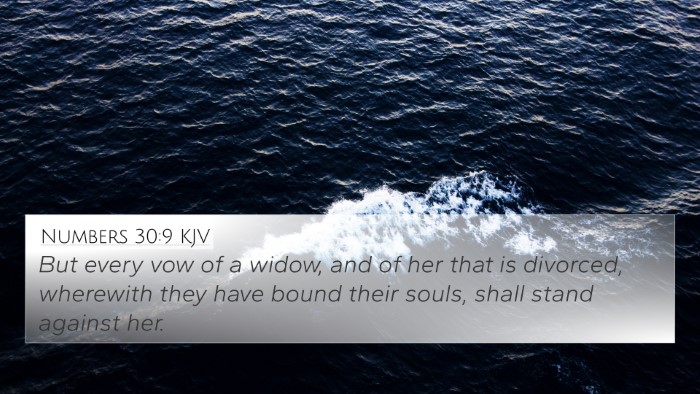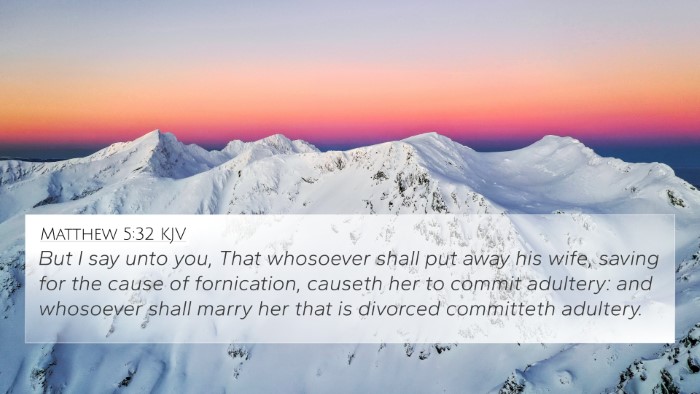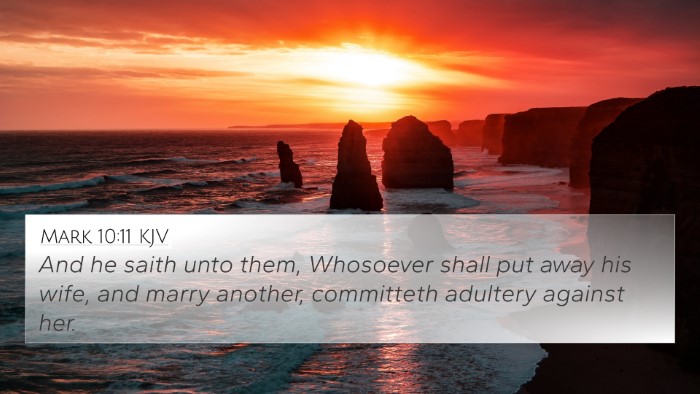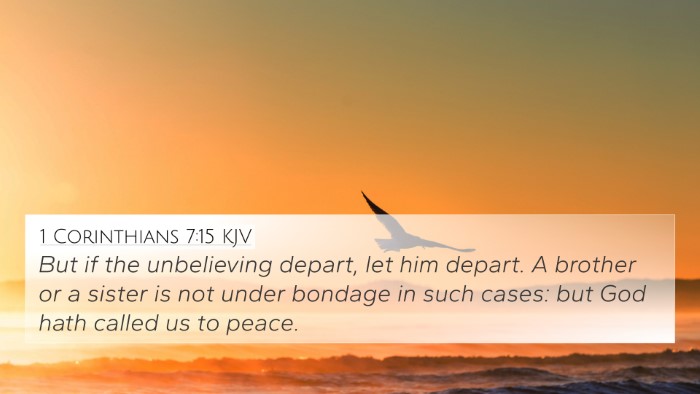Understanding Deuteronomy 24:2
Deuteronomy 24:2 states:
"And when she is departed out of his house, she may go and be another man's wife."
This verse comes from a section of the Torah that discusses laws regarding marriage and divorce. It emphasizes God's command regarding the treatment of a divorced woman.
Contextual Analysis
In ancient Israel, marriage and family laws were central to social order and religious observance. This verse is rooted in the covenantal context of the Israelite community, where relationships are pivotal. The significance of this passage can be highlighted through various commentaries:
-
Matthew Henry's Commentary:
Henry discusses the principle of marriage and the legality of divorce, noting that this command serves to protect the dignity of women by allowing them the ability to remarry, rather than condemning them to lifelong singleness. The provision provides a regulated approach to the complexities of human relationships.
-
Albert Barnes' Notes:
Barnes elaborates on the societal implications of divorce. He indicates that the regulation allows women to remarry, thereby offering them a chance for economic security and stability. He emphasizes that the heart of the law aims to preserve family integrity and ensure fair treatment amidst the challenges of divorce.
-
Adam Clarke's Commentary:
Clarke provides insights into the cultural practices of the time, noting that such laws were progressive in a patriarchal society. He highlights the importance of compassion in the law, which gives rights to the wronged party, thus advocating for moral considerations in matters of familial conflicts.
Key Themes
The main themes of Deuteronomy 24:2 include:
- Justice and Mercy: The verse embodies the balance of justice for the divorced woman and the mercy allowed in allowing remarriage.
- Women's Rights: It signifies a progressive approach to women's autonomy in relationships, ensuring they are not relegated to a life devoid of choices.
- Social Order: It emphasizes the importance of family's stability amidst the potential chaos caused by divorce.
Cross-References and Thematic Connections
This verse stands in relation to several other scriptures that discuss similar themes:
- Matthew 19:9 - Discusses the serious nature of divorce and remarriage.
- 1 Corinthians 7:15 - Addresses the conditions under which a believer may initiate a divorce.
- Malachi 2:16 - God’s stance on divorce, emphasizing His disfavor towards it.
- Mark 10:11-12 - Jesus' teaching on the implications of divorce.
- Deuteronomy 22:19 - Laws regarding marriage and the treatment of women.
- Romans 7:2-3 - Talks about the binding nature of marriage and the freedom after death.
- Luke 16:18 - An assertion from Jesus on the seriousness of divorce.
Connections Between Bible Verses
The parallel connections between Old Testament law and New Testament teachings are evident, illustrating a cohesive narrative regarding marriage:
- Legal to Grace: The transition from Old Testament law to New Testament grace allows better clarification and understanding of marital status.
- Israel’s Covenant to Christ’s Teachings: The evolution of the understanding of divorce from the Mosaic law to the teachings of Christ highlights the movement toward a deeper theological insight into relationships.
- Social Implications: Scriptures about marriage emphasize the relationship between God and His people, reflective in human connections.
Resource Tools for Bible Cross-Referencing
For deeper study and understanding of interconnected Bible verses, the following tools can be utilized:
- Bible concordance - For finding verses and their meanings.
- Cross-reference Bible study guides - To assist in comparative studies of various scriptures.
- Comprehensive Bible cross-reference materials - To dig deeper into themes and principles.
- Bible chain references - For tracing topics throughout the scriptures.
- Implementing cross-referencing Bible study methods - To better approach Biblical narratives and themes.
Conclusion
Deuteronomy 24:2 offers profound insights into the workings of divorce, marriage, and the dignity of women in the eyes of God. By examining this verse through various commentaries and cross-referencing other biblical texts, readers can gain a more comprehensive understanding of the themes surrounding marriage, justice, and the moral considerations that emerge throughout the scriptural narrative.
